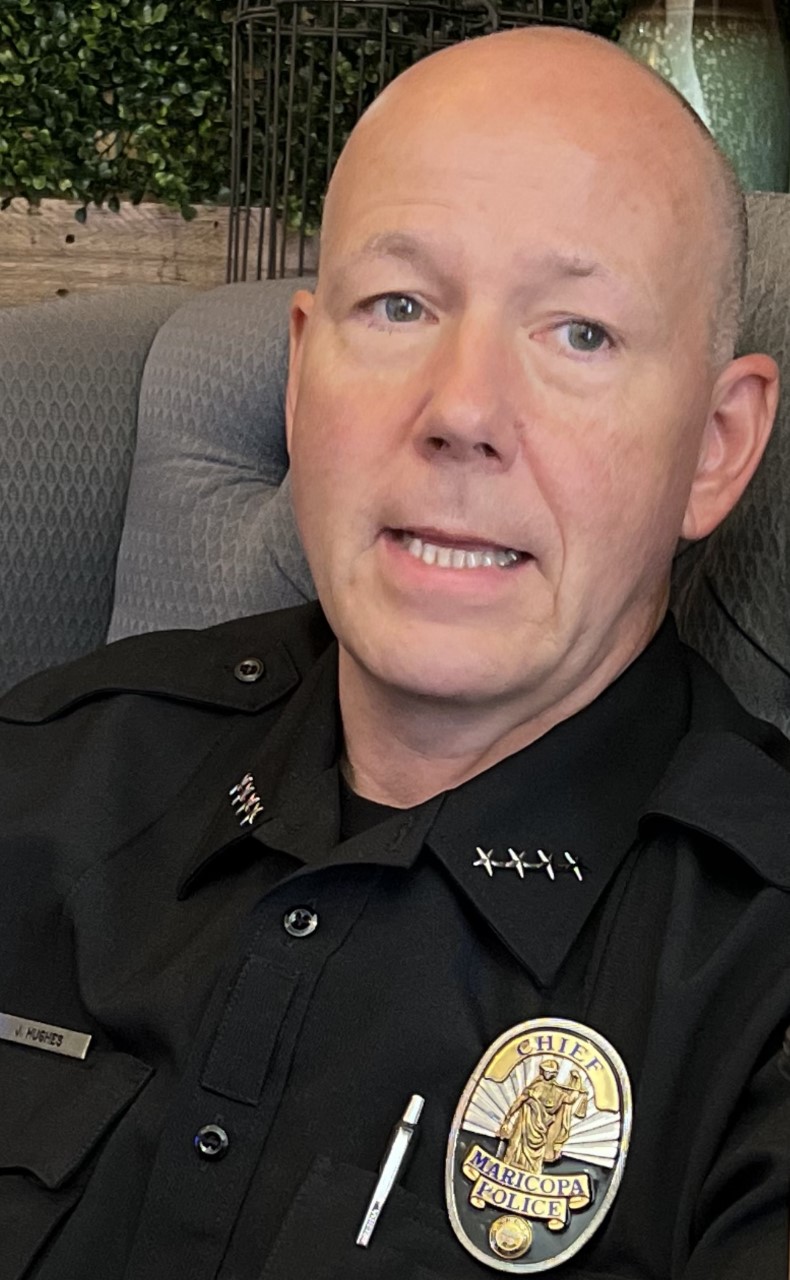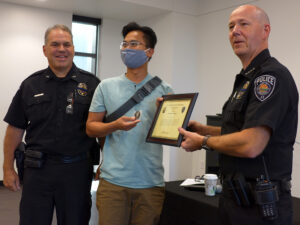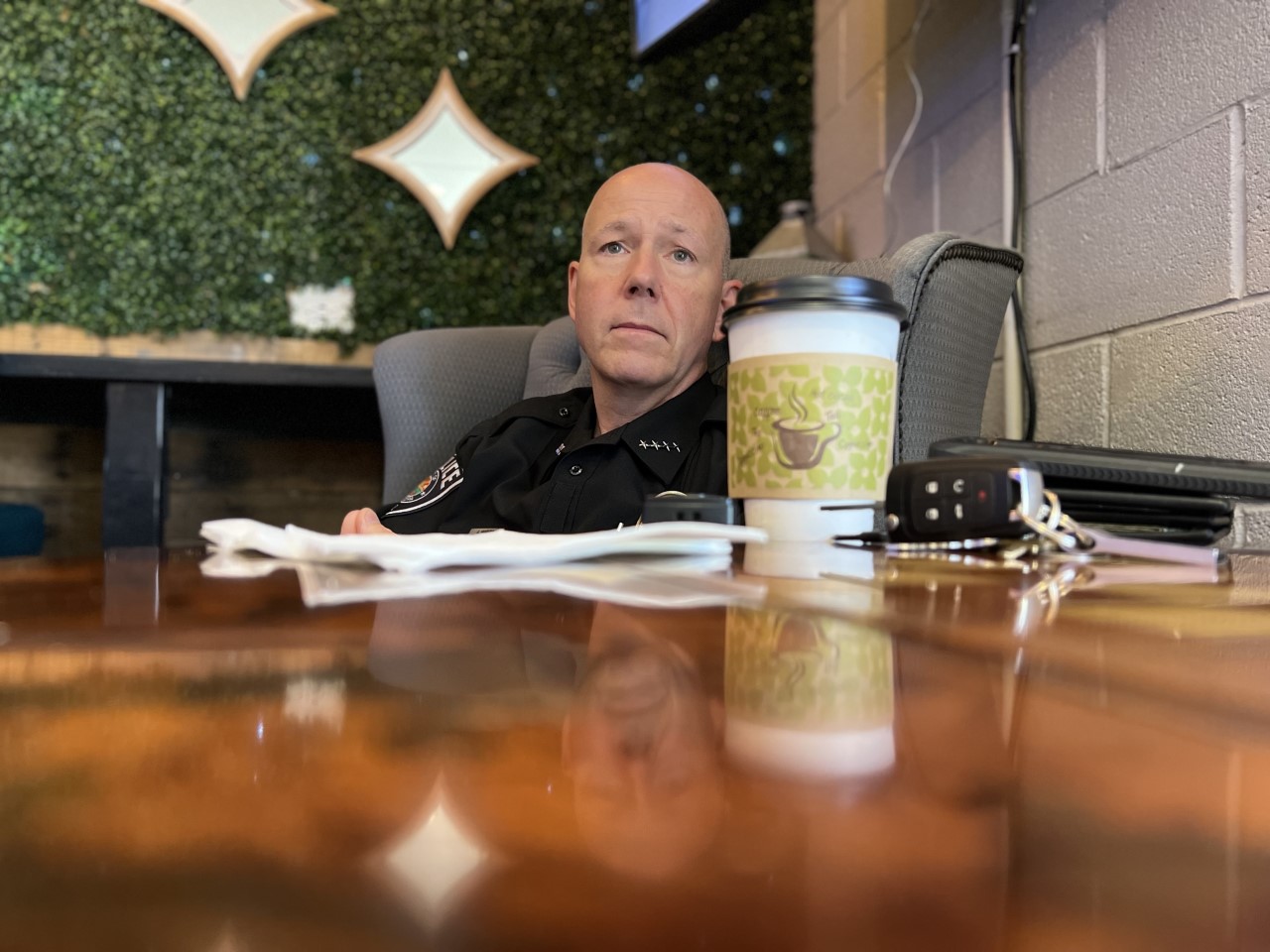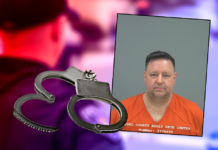Did Maricopa just get to be too big for James Hughes?
During an interview with InMaricopa two days before his 21-month tenure as the city’s police chief ended, he acknowledged the city’s growth has changed its complexion, and that while the basics of policing remain unchanged the nuances are much different and it became apparent the job was not the best fit for him.
There have been rumblings that Hughes, 56, and City Manager Rick Horst often did not see eye-to-eye, but Horst praised Hughes when he announced his resignation.
Related: Police chief resigns – InMaricopa
The former chief, a native of northern New Jersey, offered his views on where he is in life and where the city and its police department are today.
What are you going to miss most about being Maricopa police chief?
James Hughes: The interaction with people. That’s the small-town cop in me. Any good beat cop loves talking to people and engaging. I’m old enough to remember the beat cop, who knew the business owners, knew their children … As a growing city, we’re focused on providing services on a daily basis, and we always seem to be playing catch-up with the growth, whether with officers, with the programs. Maricopa is so unique with people from everywhere and they have different expectations of services. That’s huge.
You’ve been chief for less than two years and you’re leaving. What happened?
JH: A lot of things happen, and it works both ways. If the fit is not great, both people have to look at that. My wife will tell you I’m far from perfect. I made some mistakes. I own those. I really think it’s about the fit, and if you are not super happy in your role.
Why was this not the best fit for you?
JH: I prefer not to go into that, but I respect the question.
Are you OK with the city manager?
JH: Rick is very smart. He knows his economic development. He’s brilliant in a lot of ways. He has a strong leadership style, and he knows how to do his job.

JH: Probably not. Maybe in a smaller community. Maybe where I can do what we’re doing today, where I can talk to people about policing issues, talk to them about the positive stuff happening in the community, engaging volunteers. I’m kicking around some ideas. I really love dealing with employees, developing them. I can see myself moving into (human resources) and using my experience to do that. I’ve already blown the dust off the resume. I have the luxury of not having to work. I want to work, and I think that’s important. You have to have a purpose. You have to have something where you feel like you’re contributing in a positive manner.
Officers are not trained mental-health professionals, yet they’re often thrust into situations involving people with mental-health issues. What’s the solution?
JH: There are social problems, mental illness and homelessness. Often those calls happen on hours when the city is closed. So, who gets the call? The police. I think police should still be involved in some of those people-related things. If you’ve engaged with the community, you know who Joe is and what his problems are. He may be a veteran who maybe served his country and was injured and is having some problems. Yet when you have a 25-year-old police officer who is trained in compliance with patrol and he’s saying, “Get your hands out of your pocket! What are you doing here? No, you can’t go to the bathroom,” it’s not going to end well.

Where are we with the department? Do we need the new chief to come in and do a top-to-bottom audit?
JH: No. The department is really, really sound. We have a lot of great men and women. Chief (Steve) Stahl left me with a great department. We do have some concerns, like retention. We can always get police officers, but my question is can we get the right police officers? For the right reasons? That’s the secret of a great police department, because you’re only two or three bad hires away from big problems … To use a sports analogy for the next chief, you’re inheriting a talent-laden team that’s not in a rebuilding mode. We do police work really well. You look at our use of force. It’s low. I know we’ve had some officer-involved shootings recently but that’s reacting as a police officer. You can de-escalate all you want but if force is perpetrated upon us, we have to respond in kind. We’ve made some good progress in addressing mental-health issues, making progress in employee wellness. I tell officers if you can collaborate you won’t have problems. Are you engaging with business owners? Are you talking with your people? I’m a community guy. My mentality is trying to keep Maricopa in that small-town, Norman Rockwell-feel. The law is black-and-white, but police work is truly an art. It puts a lump in my throat how kind and supportive the people of this community have been.
This content was first published in the October edition of InMaricopa magazine.


![Affordable apartments planned near ‘Restaurant Row’ A blue square highlights the area of the proposed affordable housing development and "Restaurant Row" sitting south of city hall and the Maricopa Police Department. Preliminary architectural drawings were not yet available. [City of Maricopa]](https://www.inmaricopa.com/wp-content/uploads/2024/04/041724-affordable-housing-project-restaurant-row-218x150.jpg)












![Affordable apartments planned near ‘Restaurant Row’ A blue square highlights the area of the proposed affordable housing development and "Restaurant Row" sitting south of city hall and the Maricopa Police Department. Preliminary architectural drawings were not yet available. [City of Maricopa]](https://www.inmaricopa.com/wp-content/uploads/2024/04/041724-affordable-housing-project-restaurant-row-100x70.jpg)


